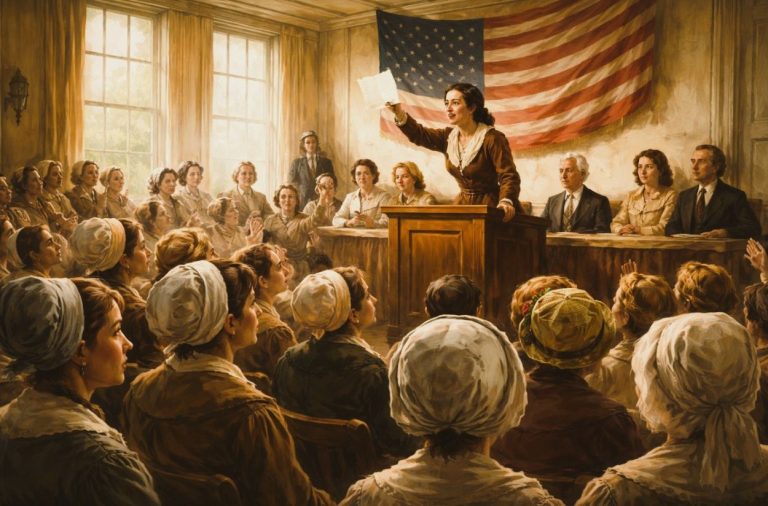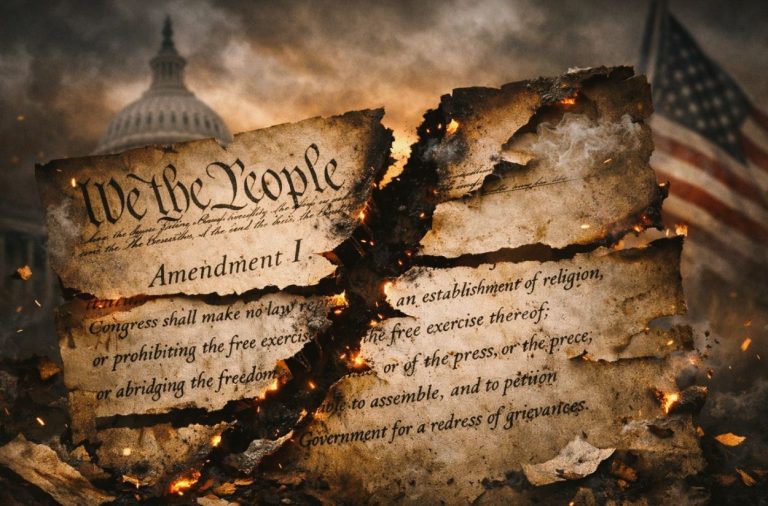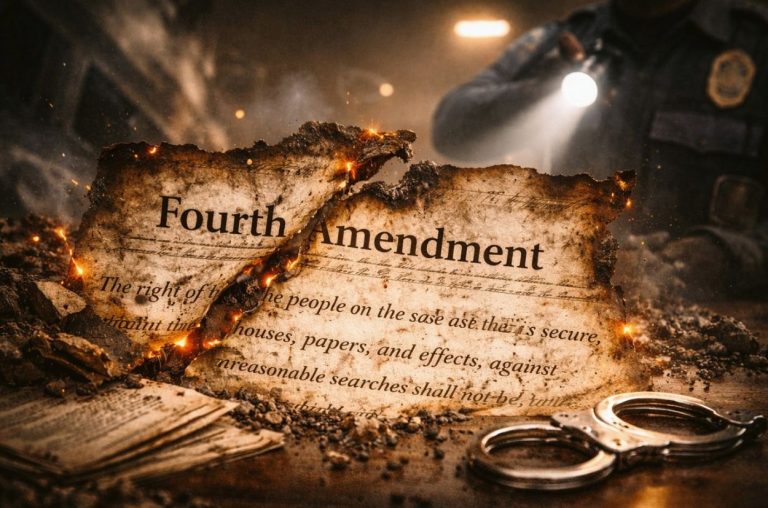

The thigh tattoo tells the story. In that image of Charlie Kirk permanently inked on human flesh, one sees not just grief but devotion, not just memory but worship.

By Matthew A. McIntosh
Public Historian
Brewminate
Introduction
On a humid afternoon in Phoenix, a young man walked out of a tattoo parlor with a fresh, painful swelling on his thigh: the unmistakable face of Charlie Kirk, inked permanently into his skin. For him, it wasn’t just body art but a proclamation, Kirk as saint, Kirk as martyr, Kirk as the face of a new kind of American faith. He is not alone.
In the weeks since Kirk’s assassination, what began as political mourning has swelled into a devotional movement that sometimes looks less like commemoration and more like canonization. Republican lawmakers are pushing to place his likeness on U.S. currency, he has been dubbed “a modern-day St. Paul”, and online communities debate whether this sudden sanctification crosses into outright idolatry. From tattoos and street murals to legislative proposals and liturgical comparisons, the line between reverence and blasphemy has blurred.
Background: From Murder to Myth
Charlie Kirk’s assassination on September 10, 2025, at Utah Valley University, was a political earthquake. The accused gunman, Tyler Robinson, has been charged with aggravated murder, felony discharge of a firearm causing serious bodily injury, obstruction of justice, two counts of witness tampering and commission of a violent offense in the presence of a child. Prosecutors stated they will seek the death penalty. What might otherwise have remained a tragic entry in the history of political violence in America has instead become something larger, a moment transformed into myth.
The memorial service itself set the stage. Donald Trump, now back in the White House, delivered a eulogy that sounded less like political tribute and more like a sermon, hailing Kirk as “a martyr for American freedom.” Crowds wept openly, raising crosses and banners, and in the days that followed, makeshift shrines appeared outside churches and courthouses, often bearing candles, portraits, and handwritten prayers.
Almost immediately, Republican lawmakers seized the moment with a proposal to immortalize Kirk on legal tender, a silver dollar coin inscribed with the biblical phrase, “Well done, good and faithful servant.” The measure, though still symbolic, represents a fusion of state, scripture, and political identity that critics say blurs the boundary between commemoration and idolatry.
Meanwhile, the Church weighed in. New York’s Cardinal Timothy Dolan stunned even many Catholics when he praised Kirk as “a modern-day St. Paul,” a comparison that sparked both applause and outrage. Others, like Good Faith Media, pushed back hard, arguing that Kirk’s faith was “Caesar’s, not Christ’s” and warning that canonizing him amounts to baptizing partisan politics in holy water.
At street level, the fervor is no less intense. Devotees share images of thigh tattoos, chest pieces, even murals depicting Kirk with a halo, circulating them on social media like icons of a new saint. On Reddit’s r/Christianity, one poster called it “straight-up idol worship,” sparking fiery debate about whether conservative Christians were now practicing the very blasphemy their own tradition condemns.
In short, Kirk’s death has become not only a political rallying cry but also a religious flashpoint, a testing ground for the limits of faith, memory, and power.
Theological and Ethical Critique
Idolatry and the Commandment Against False Gods
For many Christians, the spectacle of Kirk’s elevation feels like a direct violation of the first commandment: “You shall have no other gods before me.” Tattoos, coins, shrines, and rhetoric that verge on sanctification transform a political figure into an object of devotion. Theologians warn that this is not mere symbolism; it is idolatry. To take human loyalty and consecrate it with sacred imagery is to redirect worship away from God and toward Caesar.
Martyrdom Versus Politicized Martyrdom
The language of martyrdom is equally fraught. In Christian tradition, martyrs are those who die for their witness to Christ, not for political ideology. Yet Trump’s eulogy and Dolan’s invocation of St. Paul suggest otherwise, recasting Kirk’s death as sacred testimony. Critics argue this cheapens the concept of martyrdom, transforming it into a partisan tool. To call Kirk a martyr for Christianity, they insist, is to erase the countless saints who actually died for their faith rather than for a political cause.
The Blasphemy of Blending Politics with Piety
The fusion of political loyalty with religious reverence has long been a temptation in American Christianity, but Kirk’s public canonization represents a sharp escalation. Here, critics say, lies the true blasphemy: not only idolizing a man, but baptizing his politics with the language of holiness. Theologians warn that when Christians mistake political struggle for divine mission, they risk worshiping power itself.
Dissent Within the Faith Community
Importantly, not all Christians are complicit. The backlash is real and vocal, from Catholic religious orders distancing themselves from Dolan’s remarks to online forums filled with accusations of idolatry. These voices argue that grief, however real, cannot justify blurring the lines between mourning and worship. Instead, they insist that true Christianity points not to Kirk, but to Christ.
Political and Cultural Consequences
Martyr Narratives and Polarization
In the American political imagination, martyrdom has always been combustible. By recasting Kirk’s death as the sacrifice of a “modern-day St. Paul,” conservatives feed a persecution complex already central to their identity. The narrative frames political opponents not as rivals in a democracy but as enemies of God’s people. Such rhetoric risks further polarizing an already fractured electorate, deepening the sense of holy war in partisan politics.
We now live in an environment which calls any criticism of Kirk posthumous disrespectful slander and demands apologies from all who dare cast a downward eye toward him and the ideology he promoted. If anything lives on after Kirk, the culture war for which he fanned the flames thrives hot as ever.
Sacralization Through Legislation
The proposal to mint a Charlie Kirk silver dollar is not just symbolic. It represents the state’s direct entanglement with religious imagery, a fusion of scripture, currency, and national identity. The phrase “Well done, good and faithful servant” stamped onto U.S. legal tender echoes imperial precedents where rulers used coinage to sanctify their power. Critics argue this collapses the already-thin wall between church and state, normalizing the idea that partisan icons can be enshrined as quasi-religious figures.
The Cult of Personality as Civil Religion
In many ways, Kirk’s afterlife is a revival of the American “civil religion,” the tendency to merge patriotism with religious devotion. But in this case, the line has blurred into outright cult of personality. Shrines, tattoos, and state-backed proposals transform one man’s political brand into an object of reverence, raising questions about whether the United States is creating saints of ideology rather than servants of Christ.
Media Amplification and Cultural Feedback
The media, too, plays a role in this sanctification. By amplifying Dolan’s remarks, circulating images of tattoos and murals, and reporting on legislative proposals without sufficient scrutiny, outlets help solidify the myth. Whether intentional or not, the coverage itself becomes part of the sanctifying process, embedding Kirk’s martyrdom narrative deeper into the cultural imagination.
Counterpoints and Nuanced Perspectives
Grief Versus Idolatry
Supporters of Kirk bristle at accusations of idolatry. For them, tattoos, coins, and glowing rhetoric are not worship but mourning. They argue that commemorating a man they saw as a fearless defender of their values is a natural extension of grief. “It’s about honoring his courage,” one supporter said at a vigil, “not replacing Jesus with Charlie.” From this perspective, the sanctifying language is symbolic rather than theological, an act of cultural memory rather than religious transgression.
Political Symbolism, Not Canonization
Others insist that placing Kirk on a coin or praising him in near-liturgical terms is no different than honoring presidents or civil rights leaders. After all, American currency already carries images of national icons. To them, critics are overreacting, mistaking metaphor for blasphemy. The coin, they argue, is a gesture of respect, not canonization.
But respect for what? Presidents and civil rights leaders among others can be demonstrated to have contributed material progress to this country. Kirk was merely a contrarian with conservative opinions. He was carrying the torch of Rush Limbaugh into a new century, not forging new ground like our Founders or seeking equality for all. Charlie Kirk was no George Washington or MLK.
Kirk as never in the military. He was in fact rejected from West Point. His only claim to contribution was Turning Point USA, and that stands as a contribution to only one portion of America. Those on the right would be beside themselves with disgust if Keith Olbermann had perished during Biden’s term and received equal honors and accolades. They have ceded that virtuous high ground in their edification of Kirk.
Historical Precedent of Political Mythmaking
The elevation of political figures into saintlike status is hardly new. Abraham Lincoln was hailed as a “martyr to liberty” after his assassination. Martin Luther King Jr. has been depicted in near-biblical terms. Even secular figures like John F. Kennedy were once wrapped in quasi-religious imagery. What makes Kirk’s case distinct, however, is the speed and intensity with which his image has been sacralized, and the overt fusion of that imagery with partisan politics.
A Divided Church
Within Christianity itself, the debate exposes long-standing fractures. Evangelical circles lean into the martyrdom narrative, Catholic hierarchy is split, and mainline Protestants often recoil at what they see as blasphemy. These divisions reveal not just disagreement over Kirk but over the very role of faith in public life. For some, Kirk is a symbol of courage. For others, his deification is a betrayal of the gospel itself.
Conclusion
The thigh tattoo tells the story. In that image of Charlie Kirk permanently inked on human flesh, one sees not just grief but devotion, not just memory but worship. What began as mourning has metastasized into a movement, one that risks confusing political allegiance with sacred truth. From Cardinal Dolan’s startling comparison to St. Paul, to Republican efforts to stamp his likeness onto U.S. currency, to grassroots iconography that blurs into shrine-making, Kirk’s afterlife has become something more than commemoration.
For believers alarmed at this trajectory, the word is simple: idolatry. For supporters, it is love and honor. But either way, the sanctification of Kirk signals a dangerous collapse of categories: martyrdom without Christ, holiness without God, memory without humility. It is a moment that reveals how far American Christianity has drifted when politics becomes altar, and a partisan figure can be enthroned as both saint and savior. The real question is not whether Charlie Kirk becomes a martyr in the minds of his followers. It is what happens to a faith, and a republic, when the cross is traded for the coin, and the man becomes the message.
Originally published by Brewminate, 09.26.2025, under the terms of a Creative Commons Attribution-NonCommercial-NoDerivatives 4.0 International license.


